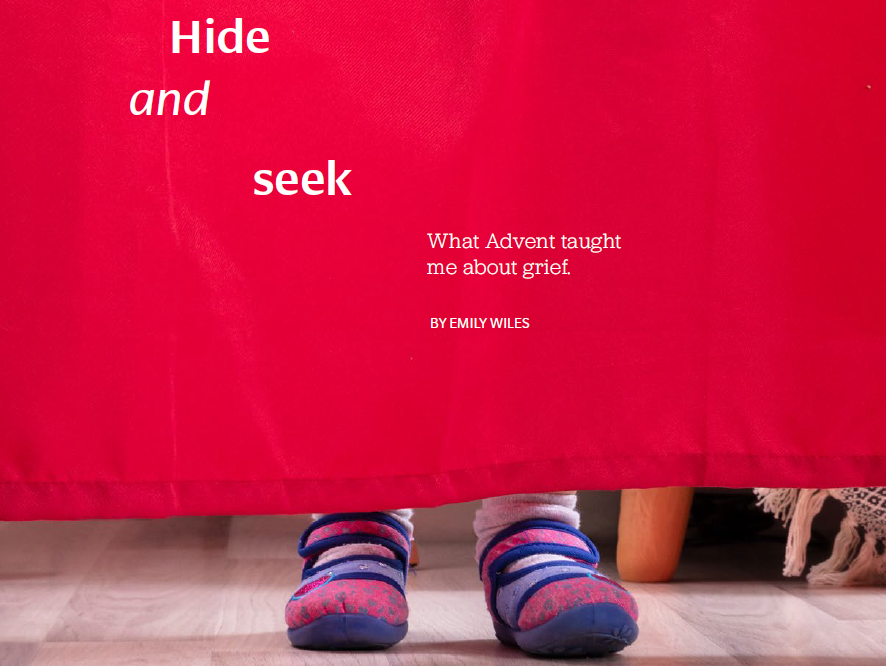God’s law connects us to the lives and needs of others.
by Katie Hines-Shah
IT WASN’T SO LONG AGO that they were slaves. It’s important to remember this, as we read about God’s gift of the Ten Commandments and the people who received them. For generations, the Hebrew people had been slaves in Egypt. Dynasties of Pharaohs and legions of Egyptians had held the Hebrew people captive.
The Egyptians had told the Hebrew people when they could go to bed and when they could get up. They’d told them where they could live and what kind of work they could do. They had told them whom they could marry and what gods they could worship. Even the Hebrew people’s children were not their own. Pharaoh had ordered the murder of all the Hebrew people’s infant sons. For hundreds of years, there had been nothing the people could do about it.
But then God called Moses. There was a burning bush, and 10 plagues and a crossing through the Red Sea on dry land. After the miraculous events of the Exodus, the newly freed Hebrew people were wandering in the desert, making their way toward the promised land. At Mt. Sinai, God gives the Hebrew people their first taste of what it means to be a free people. God gives them the Law that will bring them life. Yet it wasn’t so long ago that they had been enslaved.
When Dr. Martin Luther King Jr. and others marched from Selma to Montgomery, Alabama, it had been only 100 years since African-Americans had been enslaved for generations.
Those who took part in the Selma Marches, a series of three nonviolent protests in March 1965, wanted to ensure that Black people could exercise their constitutional right to vote. It had been 100 years since the people were freed by President Abraham Lincoln’s decrees, yet they were still waiting for the full force of that freedom to take hold.
In Selma and in many places, north and south, across the United States, the rule of law and the power of practice kept African- Americans in second-class status.
It went beyond swimming pools and water fountains. White people told Black people what schools they could go to and where they could worship. White people told Black people what kind of work they could do and where they could live. White people told Black people whom they could love.
Even the very children of people who were African-American were not treated as their parents’ own.
So many of the stories of young Black men who were imprisoned and murdered and lynched are still not fully revealed, to this day.
The law of the world worked to keep slavery alive. During this Lenten season, on the anniversaries of the Selma Marches, we stand between worlds, looking to free others, looking to become free ourselves.
The Hebrew people wandered 40 years in the wilderness. Some say that the older generation had to die so that a newer generation could enter the Promised Land.
We cannot underestimate the cost of freedom. Freedom is not easy or sure. If it were, African-American people would have received the promised 40 acres and a mule upon emancipation in 1865, and over time, the generational wealth and benefits that would have accrued from this.
Instead, in March of 1965, the people faced Jim Crow laws, the Ku Klux Klan and police officers with billy clubs who waited at the end of the Edmund Pettus Bridge.
It is so hard for us human beings to know how to make everyone free. Left to our own devices, we tend to sway toward our own interests. We look to our own comfort, and seek to protect our own wealth and status. We take the law and make it a mockery of itself.
We do it in our schools when we claim that “no child will be left behind,” yet do not advocate and work for change for American neighborhoods where young Black men may have a better chance of going to prison than graduating from college or university. We do it in our workplaces when we claim that we hire based on merit, yet one study shows it is four times more likely that an American CEO will have the first name John, James, David or William than be a woman. We do it in our churches when harsh judgments, coupled with hypocrisy, prove to a new generation that Christianity is no longer relevant.
We find it hard to stop. After all, it wasn’t so long ago that we too were slaves. We confess that we are in bondage to sin and cannot free ourselves. When we gather for worship, this confession is a reminder that while slavery was our origin, it need not be our endpoint. There is freedom, if we would grasp it. The Bible’s most radical message is that cruelty and slavery are not destiny.
Meanwhile, so much of life seems to be consumed by what we think we have to do. Pretty soon that starts to look like a kind of slavery too. There’s a song by musician Colbie Caillat that describes some messages that girls receive: Put your make up on. Get your nails done. Curl your hair. Run the extra mile. Keep it slim, so they like you. Do they like you? For boys, one version of this might be: Study hard; hit the gym; get a car; and drink too much. So they like you. And for parents, it might be: Work day and night; network right; take on more debt; hide your pain. Do they like you? We soon believe that if we could only follow the “law” of the world—by being skinny enough, rich enough, young enough, popular enough, smart enough—everything would be fine; we could save ourselves.
And because we’re judging others by the same unfair standards, we smirk at a girl or a downsized colleague or a divorced mom or a broke dad.
Even if we enslave ourselves to following the world’s rules, they don’t lead us to the promised land. No more than the Hebrew people could obey their way out of slavery in Egypt. No more than any African American person could pass the “voting test” at the Selma courthouse. Such laws are shackles.
Thanks be to God, Jesus turns over our neatly-set tables. Jesus comes to free us from the various kinds of slavery we would set on ourselves. Jesus calls us and raises us up to new life. In the waters of baptism, the Son makes us free. As Jesus says in the Gospel of John, “If the Son makes you free, you will be free indeed” (8:36).
We are not to return to our old ways.
God gives us a new law, making us a people who do not just look out after our own interests. God gives us a law that connects us to the lives and needs of others. God’s gift of the Ten Commandments is also a sign: We will only be successful—we will only flourish—if we are willing to limit our individual freedoms for the sake of the whole we can become. So we will not murder or lie or steal, even if it seems to be in our best interest. We will honor our parents, even if this proves difficult. We will refrain from following baser urges, such as desiring a neighbor’s goods or spouse. We will, against what seems like common sense, take a day off every week to worship God, and give time off as well to those who serve us, children and even animals. And we will fight for justice and work for peace—even when it takes us to the Selmas of the world.
Jesus shows us that fighting for freedom is worth raising a protest, like Dr. King. Fighting for freedom is worth risking our lives, like the late Congressman John Lewis. Fighting for freedom is even worth laying down our lives, like James Reeb, a white pastor who was beaten to death for joining the Selma protest. Because we are called to fight for freedom, even if it means overturning the tables in our lives and the tables in our world. Jesus promises that, just as his body is raised up, so ours will be too.
Loving God and our neighbor means accepting limits. But in the limits, we find a greater freedom.
The Rev. Katie Hines-Shah is senior pastor at Redeemer Lutheran Church, Hinsdale, Illinois. She enjoys spending time with her husband and two children, preaching, teaching, writing and quilting.
This article appears in the March/April 2023 issue. To read more articles like it, subscribe to Gather.

Feeling homesick
Moving in, moving on By Susan K. Olson BY THE TIME THE MIDDLE of September hits, the college...

Hide and seek: What Advent taught me about grief
By Emily Wiles WHEN I WAS YOUNG, I was a champion seeker in the game of hide and seek. I had an...

Go-to places for sacred spaces
By Kathryn Haueisen— I’m embarrassed about how many times I’ve changed my address. Sometimes I’ve...


